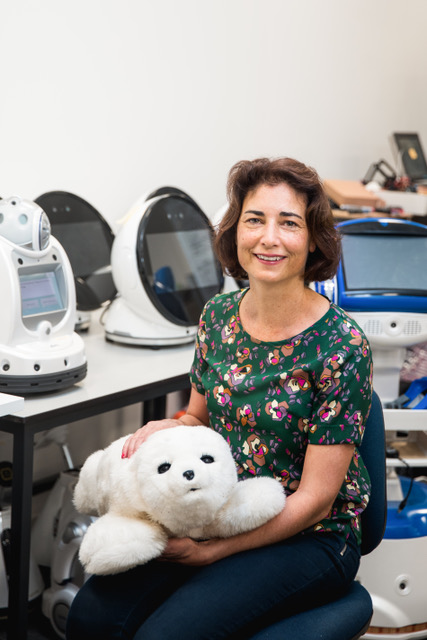A very simple design for a very intelligent machine (but with a catch) by Douglas Campbell
What is the essence of intelligence, and how can it be distilled into a design for an intelligent machine? In this talk I show that the answer this question is much simpler than most people think. I present a very simple design for a very intelligent machine, but also explain why, despite its intelligence, the machine is not likely to take over the world any time soon.

Doug Campbell‘s turangawaewae is Waiora, in Northern Hawkes Bay. He has degrees in Biology and Computer Science, and a PhD in Philosophy from the University of Arizona. He has long been very interested in Artificial Intelligence, Consciousness, human nature, and the Philosophy of Technology.
Who would you like to deliver your healthcare? by Elizabeth Broadbent
Technology can offer enhanced access to healthcare by reducing barriers such as low availability of clinicians, long distances, cost, and stigma. Intelligent artificial agents, including chatbots, virtual humans, and robots can all be used to collect patient data and deliver health interventions. But which is best for what application, and how do these technologies compare to human care? This talk will present the findings of several studies comparing these forms of artificial agents for health applications, and consider the advantages and disadvantages of each. The talk will discuss the implications of these findings and future directions for the development of artificial agents for healthcare interactions.

Elizabeth Broadbent is a Professor of Health Psychology at the University of Auckland, and a fellow of the Royal Society of New Zealand. She initially trained as an electrical and electronic engineer at Canterbury University to pursue her interest in robotics. After becoming interested in the psychological aspects of robotics and in psychoneuroimmunology, she retrained in health psychology. Elizabeth was a visiting academic at the school of psychology at Harvard University and in the Program in Science, Technology, and Society at Massachusetts Institute of Technology in Boston, USA. She obtained a Fulbright award to study companion robots. Her research interests include the use of companion robots and virtual humans in health contexts. She is particularly interested in the emotional connections we form with robots and virtual agents, and how we can build emotional intelligence and empathy skills into technology, to improve health outcomes.
The Heuristic of Sufficient Explanation: Implications for Human-Agent Interaction by Andrew Vonasch
Attributing reasons for another agent’s behaviour is a foundational aspect of social cognition. I will discuss a model of attributions, called the “heuristic of sufficient explanation,” and its implications for human-agent interaction: People look for sufficient reasons to explain events, and when the explanations seem insufficient, they look for hidden explanations. This model helps explain and unify many otherwise surprising and diverse findings: incentive backfires in which paying people more makes them less likely to do things, romantic backfires in which people are suspicious of attractive potential partners because they are too attractive, a political bias to perceive contrapartisans as having bad intentions behind their policies, a tendency for conspiracy theories to develop to explain counterintuitively large events, and a tendency to perceive bad intentions behind other people’s actions you believe are unjustifiable.

Andrew Vonasch is a senior lecturer in psychology at the University of Canterbury. His research training was at Pomona College (BA in psychology and economics), Yale University (post-baccalaureate research assistant), Florida State University (MS and PhD in psychology), and the University of North Carolina at Chapel Hill (postdoc). His research examines the social psychology of morality, with a particular focus on subjective elements of mind (e.g. reputation, intentions, motives) and how other people perceive them and respond to them. Dr. Vonasch publishes in top journals including Nature Communications, Social Psychological and Personality Science, and International Journal of Social Robotics.